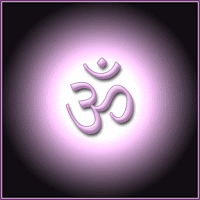Hari
OM
Application - that is what 'Workings-days' are about!
The Narada Bhakti Sutra is our guide for a while… the
nature of Love (with the capital 'ell') and a full exploration of it. As
always, you are encouraged to seek out the full text from Chinmaya Publications
(links in side-bar); but for those who prefer e-readers, this version is recommended. Whilst awareness and interest can be
raised by these posts on AV-blog, they cannot substitute for a thorough reading
and contemplation...and practice!
Chapter
Five, Section One, continued.
Gu[riht<
kamnarihtm! àit][vxRman<
AiviCDÚ<
sUúmtr< Anu_avêpm! .54.
Gunarahitam
kaamanaarahitam pratikxanavardhamaanam,
Avichcchinnam
suukxmataram anubhvaruupam ||54||
…(it
is) without attributes, without the poison of
desires, every moment increasing, unbroken, subtlest, of the nature of sheer,
immediate experience…
Having
advised us that there are few individual who can truly manifest the Divine
within, he goes on further to describe the indescribable in order to expand on
why this is the case.
It
is said that Divine Love is without attributes. In other words, there is no
attachment of anything that we are currently familiar with as being 'love'.
There is no ecstasy, passion, focus on a particular other individual. It is so
pure it is free of any sense of desire. There is no song and dance, with
physical effects. It is a Love for the Whole, a Love which transforms, a Love
that passeth all understanding.
As
you may appreciate, what is being described here is so pure and exalted, it is
beyond the reach of our ordinary perception and comprehension. All the 'love'
we think we have known till now falls under the label of 'kaama' - desire. Love
which is desire-prompted is, truly speaking, lust; this is not to say only
physical (as we have come to know it), but anything which distracts or disturbs
the mind. A child thinking only of the sweets it may prefer to have over the
carrots on the plate is in the grip of lust! True Love (that with the capital
'ell') is a victory of the Spirit. Love creates, lust destroys the peace in the
heart. Love will live the joys, lust merely seeks them. Love generates
tranquillity, lust excites. It is imperative to grasp this significant
difference between love with desire and
Love without desire.
Also,
in this sutra, the emphasis is that Love Divine is kaamana-rahita; free from
even the awareness of desire. Moment to
moment it expands in efficacy; it deepens and strengthens and this is the Love
which conquers all.
What
is more it is avichchhinnam; once experienced, this Love is unbroken and
remains whether in waking, dream or deep sleep. It is the total identification
with the Divine. It becomes the constant in our lives and in our connection
with the Higher. Throughout every part of life, in action, in thought and
feeling, in our intellectual work, the Love remains unbroken and ever-growing
in its influence, informing each of our activities but without any taint if
desire. True Love seeks no return.
It
is sookxmataram; supremely subtle. In Vedanta, subtlety is measure by its
pervasiveness. Thus, it is
all-pervading. It knows no boundaries or limitations; no "I love this but
not that", no "I love my own but not the other". As soon as we
put limitations on our 'love' we are leaving place for non-love. Walking in
company with the Love Divine, there is not one iota of hatred. There is only an
understanding that each and everything thing, each and every place, each and
every other individual, is a part of that Love. In this way we see clearly that
All Is One. We see that the Divine resides everywhere.
Due
to the subtlety, we can be forgiven for thinking such a Love is elusive and
even unobtainable. Not so! We have been told that, with correct practice, we
certainly can experience Love. What is more, it becomes anubhaava - our
immediate experience. By this we must understand that all other experience is
mediated via the conduits of our sensory perception. Love Divine is within us
and requires no intermediary access. Anu means 'continuous', bhaavam means
'becoming'. It is a case of reconnection to the source of our being and a
constant revealing of the Divine in all subsequent experiences. It is the
essence of 'being'. Pure Existence. "Try! Just BE!" declares the
Chhandogya Upanishad (7:24).
The
difficulty of describing the nature of Love will be dawning upon you by now; it
is actually beyond words - anirvaachaniiyam - like that dumb fellow attempting
to explain his first taste of sugar.
Such is the brilliance of this inexpressible Love, it is only found in
some rare persons, for making oneself sufficiently pure and clear and empty
requires a special something.
This concept of becoming pure and clear and empty exists within
Christ's teachings also; “Truly, I say to you,
unless you turn and become like children, you will never enter the kingdom of
heaven." (Matt. 18:4)


